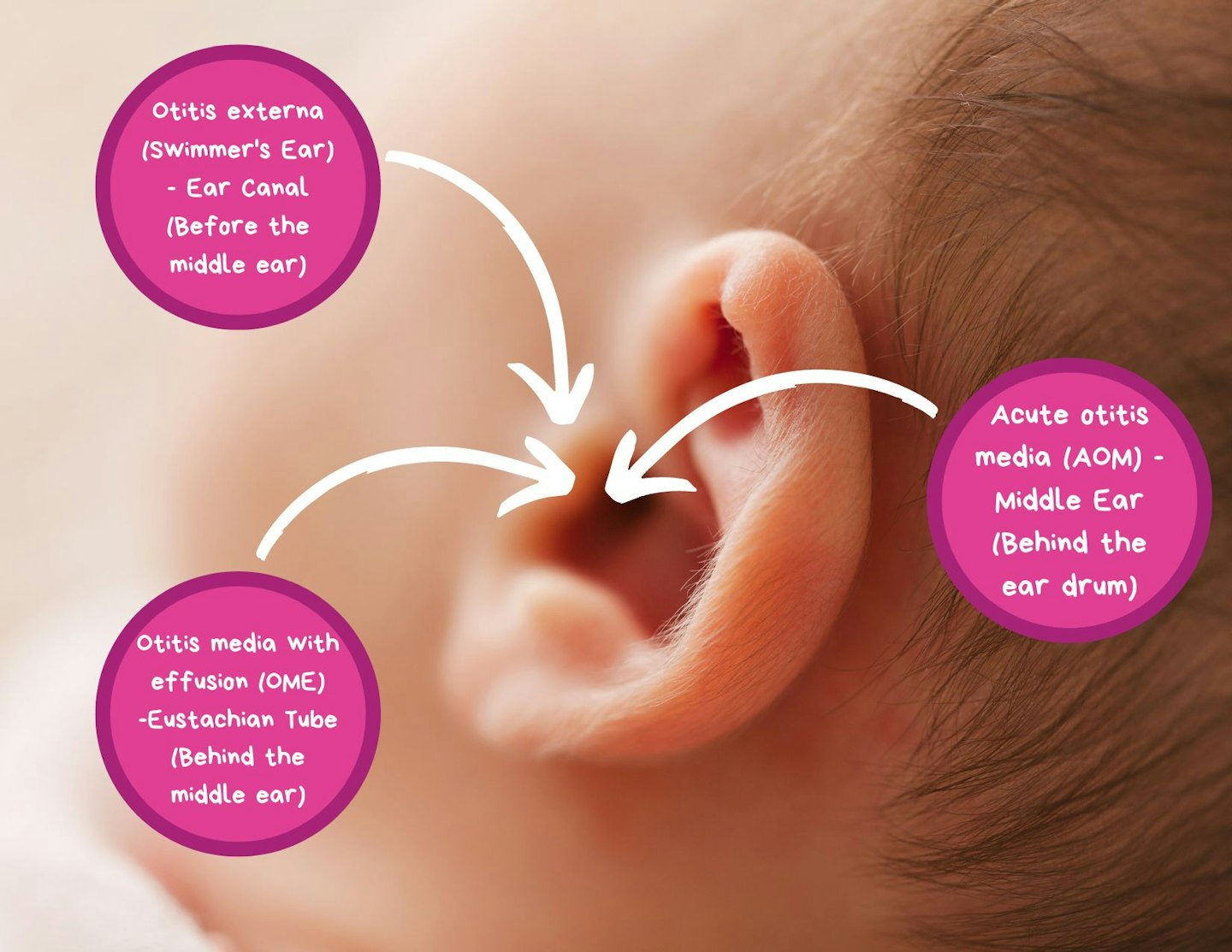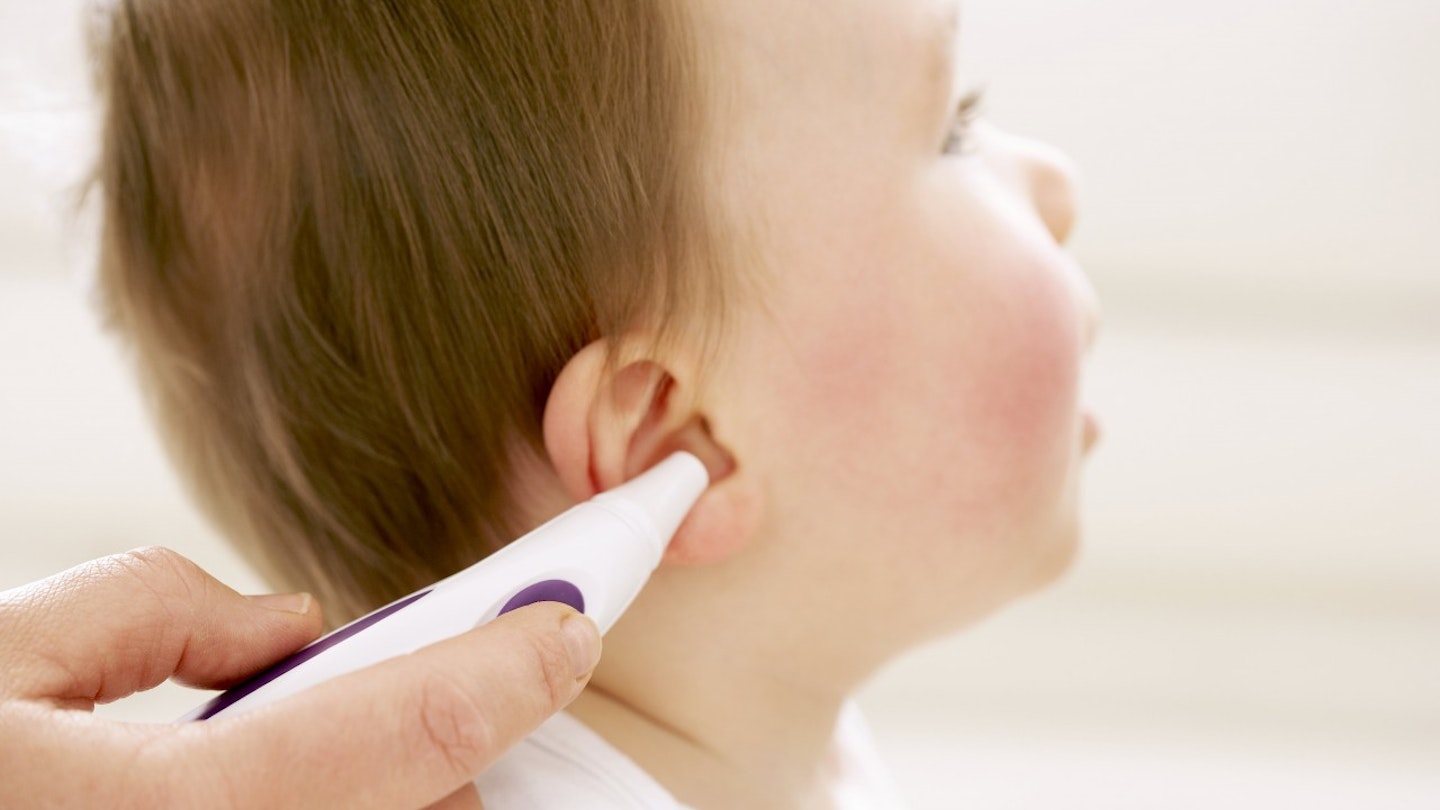When your little one is unwell, it can feel like A LOT as their parent looking after them, but luckily, when it comes to ear infections in babies, there are lots of ways to figure out if that's the problem, and then treat it. It's tough to see your little one suffering, but getting them back at their best is very doable.
Ear infections are unpleasant for anyone, at any age, but of course, with babies, they can't properly tell you what they need or how they're feeling, which is why being clued up beforehand can be handy, and give you a sense of peace if your little one does become poorly.
Work out why your baby may be feeling under the weather with our expert overview of the signs, causes, and treatment of ear infections in babies down below - you've got this!
What is an ear infection in babies?
Ear infections occur when bacteria or a virus gets inside the middle ear, which then becomes inflamed and painful. ‘The ear is connected to the throat via the Eustachian tube, so colds and sore throats can commonly affect it,’ says GP Rebekah Gibbons. ‘Particularly as a baby’s Eustachian tube is shorter and wider than in adults, so bacteria can easily travel along it.’
What are the 3 types of ear infection?
Acute otitis media (AOM)- The most common type of ear infection in children, where the area behind the eardrum becomes inflamed and infected. If your child suffers with allergies, they'll be more likely to get this version.
Otitis media with effusion (OME) - This occurs when the eustachian tube becomes clogged up with fluids that can't drain properly. This version tends to come during cold and flu season, and they may feel it in their throat too.
Otitis externa (Swimmer's Ear) - Known for being more common from exposure to water, this is an inflammation of the ear canal and it tends to only flare up in one ear. You can use ear plugs to avoid this if your child loves swimming.

How do you know if a baby has an ear infection?
The real problem is your baby can’t tell you her ear hurts but you can look for clues. 'Ear infections can be very painful,' says Rebekah. 'They're a common cause of sleepless nights, so your baby may seem more fractious or tearful than usual and may tug at her ear or grind their teeth.'
The good news is most babies outgrow ear infections
Her temperature may be raised, although not always, and she may refuse feeds or pull away from the breast if sucking makes her ear hurt. Ear infections typically follow colds, so a recent snotty nose or sore throat is another clue.
What can you do if your baby has an ear infection?
Breastfeeding beyond four months has been shown to lower your baby’s risk of ear infections and help with if they get a cold too. Using a dummy may also aggravate the problem by allowing bacteria to travel more easily from the nose to the middle ear, so try to limit dummy use until the infection clears up.
If you’re bottle feeding, keeping your baby in an upright position for up to 30 minutes after a feed can stop fluid collecting at the back of the throat where bacteria will thrive.
Allergens can also cause fluid to build in the nasal passages and middle ear, so hypoallergenic bedding and washing sheets at a high temperature can help reduce this. Whatever you do, you should learn how to clean your baby's ears safely and never clean inside the ear, as you could make it worse.
How can you relieve your baby's ear pain?
Over the counter medications like acetaminophen or ibuprofen can be helpful for older babies, to give them some quick and effective relief - just give their paediatrician a call to make sure that's a suitable option for your child.
As well as keeping them upright, a warm compress can help to relieve ear pain, including infections. There's also a lot to be said for just being there for them, and giving them lots of cuddles and time to properly rest-up.
How serious is ear infection in babies?
Because most ear infections tend to go away after a few days, they're not considered too serious, Obviously that doesn't feel as reassuring when you're looking after an upset and uncomfortable baby, but it's something to remember when the inevitable and valid feeling of parent panic sets in.
See your GP if…
The problem persists for more than a couple of days. 'Most mild ear infections clear up without antibiotics, so it may be that your doctor advises a watch-and-wait approach for a couple of days,' says Rebekah. 'Give your child ibuprofen or paracetamol suspension to ease discomfort.'
The good news is most babies outgrow ear infections as their Eustachian tube becomes longer and narrower, making it harder for germs to get as far as the ear.

Eve Miller is a Commercial Content Writer for Mother&Baby, working for Bauer Media for over two years. She is passionate about beauty, creative writing, and women’s healthcare.
